We are pleased to announce the opening of registration for the course "Mahāyāna Buddhism and its expansion in East Asia". This course is the result of a successful collaboration between the Fundació Universitat Rovira i Virgili and the Dharma-Gaia Foundation, and has been created in response to the exceptional reception of previous courses and the growing interest in the academic study of Buddhism. Conceived as an innovative online program, it will be offered in the last quarter of 2024 and is especially designed for the Spanish-speaking community around the world.
It offers participants a highly flexible learning modality: the possibility of joining sessions in real time or accessing session recordings throughout the course. This feature ensures that each student can adapt their learning to their own schedule and needs, no matter what time zone they are in.
We invite interested parties to discover more about this educational program, distinguished by its exceptional quality content and innovative design.
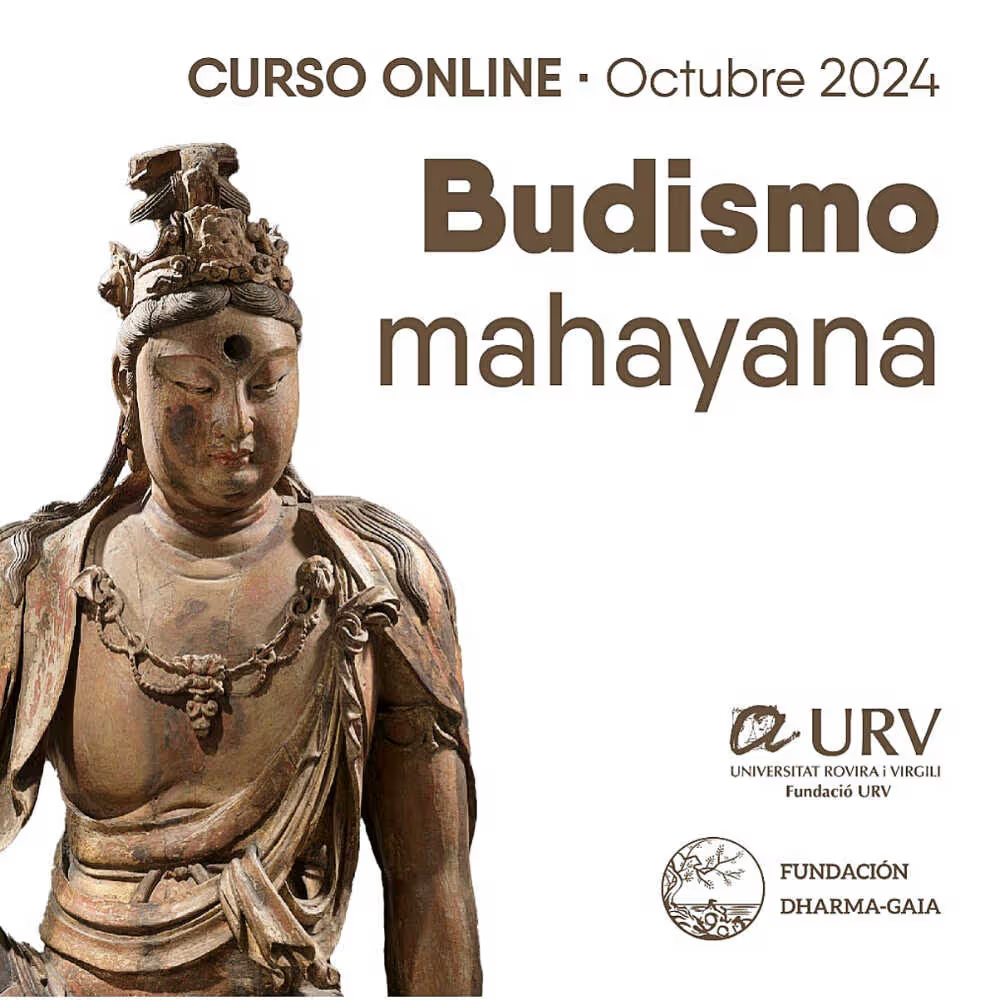
Buddhist teachings have transcended borders and millennia, becoming an enduring legacy that has influenced the philosophy, psychology and art of the modern era. Despite its mark on contemporary culture and having guided countless practitioners in the remotest corners of the planet, Buddhism remains largely unknown in Spanish-speaking countries and in Latin American university classrooms. Aware of this lack, the Rovira i Virgili University Foundation and the Dharma-Gaia Foundation have joined forces to further open the doors to the rigorous academic study of Buddhism in Spanish. In 2021, the two institutions forged an ambitious collaboration agreement that has given life to an unprecedented program of Buddhist studies, consisting of academic courses, specialized publications, conferences and a range of educational activities.
The fruit of this alliance is the recent publication of Buddhist Studies in Latin America and Spaina collective work of academic research in two volumes that opens horizons to the knowledge of this millenary tradition in the Spanish-speaking world. Edited by Rovira i Virgili University Publications and the Dharma-Gaia Foundation, some of the leading scholars of Buddhism in Spanish have participated in this work. The first volume of this work is already available and can be downloaded at the following link: https://llibres.urv.cat/index.php/purv/catalog/book/563
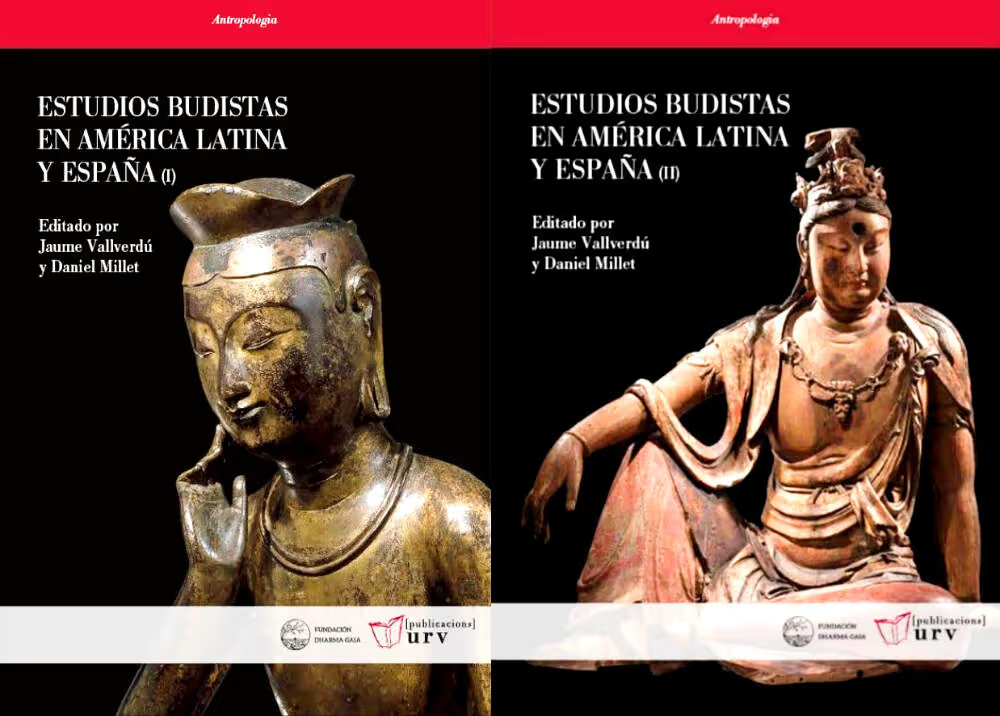
Following the success of the inaugural series "Studies in Buddhism and Meditation Traditions," which ran from September 2022 to December 2023, FURV and FDG have launched a new, more extensive series of four courses independent of each other entitled. "Mahāyāna Buddhism and its spread throughout East Asia" taught between April 2024 and December 2025, with the intention of providing as complete and comprehensive an overview of Buddhism and its component traditions as possible. Specifically, this new program will cover: 1) Early Buddhism and the Theravāda tradition; 2) Mahāyāna Buddhism and its irradiation throughout East Asia; 3) Tantric Buddhism and Vajrayāna Buddhism; and 4) Modern and contemporary Buddhism. An ambitious project that opens the doors to a deep and rigorous knowledge of Buddhism in the Spanish-speaking academic environment, combining ancient tradition and intellectual vanguard.
After the extraordinary reception of the first course in this new series entitled. "Early Buddhism and the Theravāda Tradition: Teachings and Practices".which had more than 60 students and a very positive feedback from the participants, the FURV and the FDG announce this second course entitled "Mahāyāna Buddhism and its expansion in East Asia.", co-directed by Professor Jaume Vallverdú, PhD in Social and Cultural Anthropology and professor of the Department of Anthropology, Philosophy and Social Work of the URV, and Dr. Daniel Millet, president and founder of the Dharma-Gaia Foundation. This new academic proposal will be taught between the beginning of October and the end of December 2024 and, like previous courses, will include the participation of renowned teachers in the field.
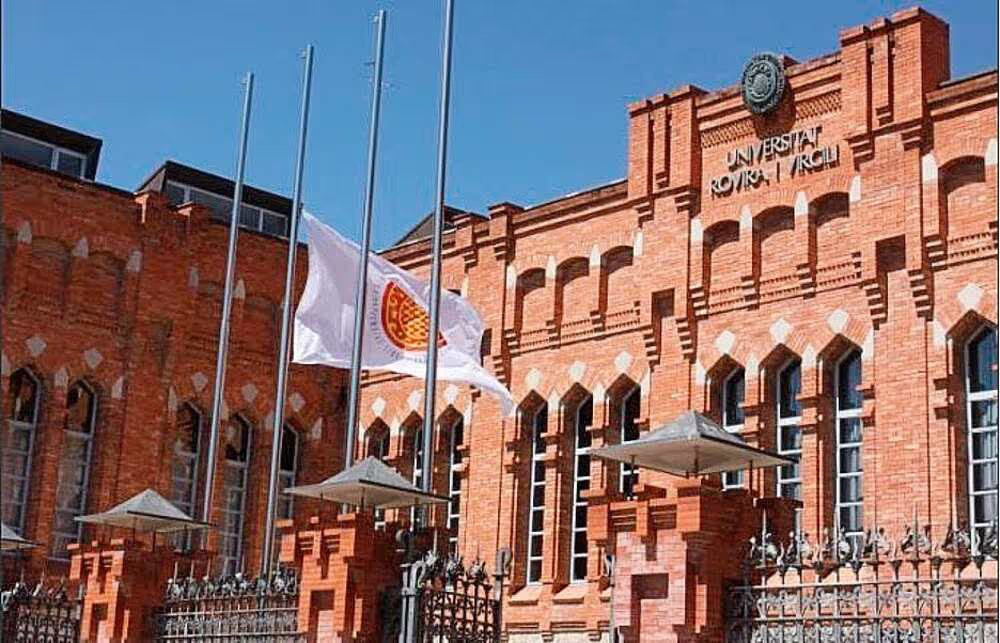
Course description "Mahāyāna Buddhism and its expansion in East Asia".
This theoretical and practical course offers a comprehensive and exhaustive overview of Mahāyāna Buddhism and its spread throughout East Asia. It begins with the historical and philosophical development of Buddhism in India after the passing of the Buddha, delving into the evolution, and the teachings, practices, and characteristics unique to the mahāyāna tradition. Crucial topics such as the controversies surrounding its origins, the bodhisattva ideal and its path, Buddhahood, Buddha-nature, the doctrines of the Buddha's three bodies(trikāya) and the tathāgatagarbha are explored. And Pure Land Buddhism and the Madhyamaka and Yogācāra schools are considered. The concept of the prajñāpāramitā and the devotional and artistic manifestations of Mahayana are emphasized, along with its expansion into Central Asia and China, evaluating its adaptation in these regions.
The second part focuses on Chinese Buddhism, examining its interaction with local culture and spirituality, and analyzing essential texts and main doctrinal currents. The Tiantai, Huayan, Pure Land and Chan schools are studied, highlighting their contribution to Buddhist thought, even beyond Chinese borders. This segment includes a practical chan meditation workshop, providing an experiential experience of this ancient tradition taught by an authorized meditation guide from this lineage. It concludes with an analysis of the contemporary evolution of Buddhism in China, from the Ming and Qing dynasties to the birth of humanistic Buddhism, providing a comprehensive overview of its transformation and relevance today.
The third section outlines the trajectory of Buddhism in Japan from its introduction, highlighting its interaction with Confucianism and Shinto, and its development from the Nara era to the postwar period. The formation of the six Nara schools and the influence of the tendai and shingon schools during the Heian era are reviewed, as well as the emergence of new forms of popular Buddhism in the Kamakura era with the creation of the jōdoshinshū, sōtōshū, rinzaishū, nichirenshū and jishū schools. The strengthening of Zen in the Muromachi era is highlighted. The Edo era focuses on the division of the jōdoshinshū school and the influence of figures such as Hakuin Ekaku. The Meiji era reflects the destruction of Buddhist culture under the haibutsu kishaku, while the Pacific War and postwar period sees the formation of new schools. The course concludes with a look at the expansion of Buddhism into Korea and East Asia.
Language and scope:
It is taught in Spanish and is aimed at students and the general public who are highly interested in the subject.
Duration:
The course will have a duration of 60 teaching hours, equivalent to 6 ECTS credits. There will be 5 hours of class per week through the virtual campus (Moodle) of the URV spread over two days.
Dates and schedule:
The course will be held from October 1 to December 19, 2024. The afternoon schedule, from 16:00 to 18.30 (Spanish time), according to the calendar, allows students from Latin America to follow the course.
Location: virtual campus (Moodle)
The course format is virtual and consists of two videoconference sessions per week. All teaching sessions will be recorded so that students can view them during the course.
Enrollment:
The course offers a limited number of 50 places, to be filled on a first-come, first-served basis.
The registration fee is 180 €.
Admission requirement:
The only requirement for admission to the course is to have passed the secondary school level.
Requirements necessary to meet completion requirements:
- A minimum of 70% online attendance.
- Delivery of a final essay of approximately 2000 words.
Certifications
A certificate of achievement will be awarded to participants who successfully complete the course. A certificate will be issued to students who have completed the four stand-alone programs "Buddhism and its traditions: from its origins to its modern interpretations", taught between April 2024 and December 2025.
Find here the link to the registration form
Objectives:
To know the history and cultural context of the Buddhist tradition.
Learn the philosophical, doctrinal and practical foundations of East Asian mahāyāna Buddhism.
Learn and experience the basics of mahāyāna meditation.
Academic direction:
Jaume Vallverdú Vallverdú
Daniel Millet Gil
Faculty:
The course has specialized and highly qualified teachers in Buddhist teaching.
Teaching staff:
Agustí Pàniker Vilaplana
María Elvira Ríos Peñafiel
Gustavo Pita Céspedes

Agustí Pàniker Vilaplana (Barcelona, 1959) is director of the Kairós publishing house, essayist, lecturer, and a great scholar of India and world religions. He is a professor in several university masters, among them the Master of Religions and Societies of the Pablo Olavide University (Seville). He has also taught on the Master's Degree in History of Religions at the UAB-UB, on the Master's Degree in Asian and Pacific Studies at the UB and on the Master's Degree in Immigration and Intercultural Education at the UB. He is the author, among others, of the books: Jainism. History, society, philosophy and practice(Kairós, 2001); Índika. Una descolonización intelectual: reflexiones sobre la historia, la etnología, la política y la religión en el Sur de Asia (Kairós, 2005); Los sikhs (Kairós, 2007); El sueño de Shitala. Journey into the World of Religions (Kairos, 2011); The Caste Society: Religion and Politics in India (Kairos, 2014) and The Three Jewels. The Buddha, his teaching and the community (Kairos, 2018). He has written numerous articles in university publications and popular magazines on different aspects of societies, traditions, religions and cultures of the world.

María Elvira Ríos Peñafiel (Santiago, Chile 1980) holds a master's degree and PhD in Asian and African Studies, with a specialization in China, from the Center for Asian and African Studies at El Colegio de México (2015). She was a doctoral student of the renowned professor Luis Óscar Gómez. She has published her research on Buddhism and Chinese culture in multiple academic journals. She is coordinator of Nuevos diálogos: Asia y África desde la mirada latinoamericana, El Colegio de México (2019). She has been advisor of the Chinese Language Project of the Ministry of Education of Chile (2015-2018), researcher-coordinator of the project Licenciatura en Estudios Chinos, Universidad Santo Tomás (2018). She has taught courses on Buddhism in various Latin American academic institutions, was a postdoctoral fellow at the Institute of Aesthetics of the Pontificia Universidad Católica de Chile, with the research "The ecological reflection of Chinese Buddhism". She is currently an adjunct researcher at the Millennium Nucleus ICLAC, Catholic University of Chile, professor at the Dharma Gaia Foundation and member of RIEB, ALADAA Chile and LEB.

Gustavo Pita Céspedes (Havana, Cuba, 1959) obtained a Master of Arts in Philosophy from Leningrad State University in 1983. He taught History of Philosophy at the Instituto Superior de Arte de Cuba from 1987 to 2004. In 2006, he earned a Master's degree in Asian and African Studies from El Colegio de México, and in 2013, a PhD in Translation and Intercultural Studies from the Autonomous University of Barcelona (UAB). He has done research stays in Japan at Hanazono University (1993-1994) and at the University of Tsukuba (2007-2008) as a Japan Foundation Fellow. He is currently a professor in the Department of East Asian Studies at UAB. He is the author of the book Genealogía y transformación de la cultura bushi en Japón (2014), several articles on Japanese philosophy and culture, and translations of literature from Japanese to Spanish.
Information and contact person FURV:
For more information, visit the URV Foundation website or contact FURV contact person: Cristina Jacas - cristina.jacas@fundacio.urv.cat
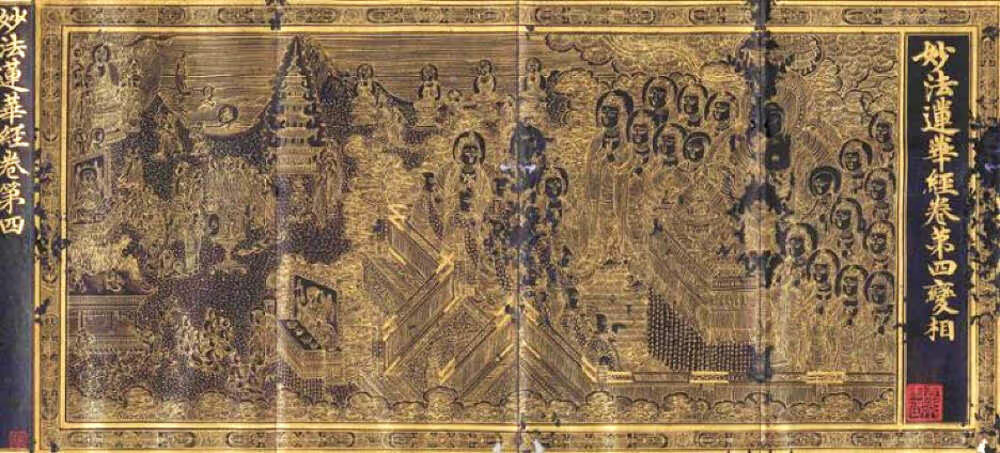
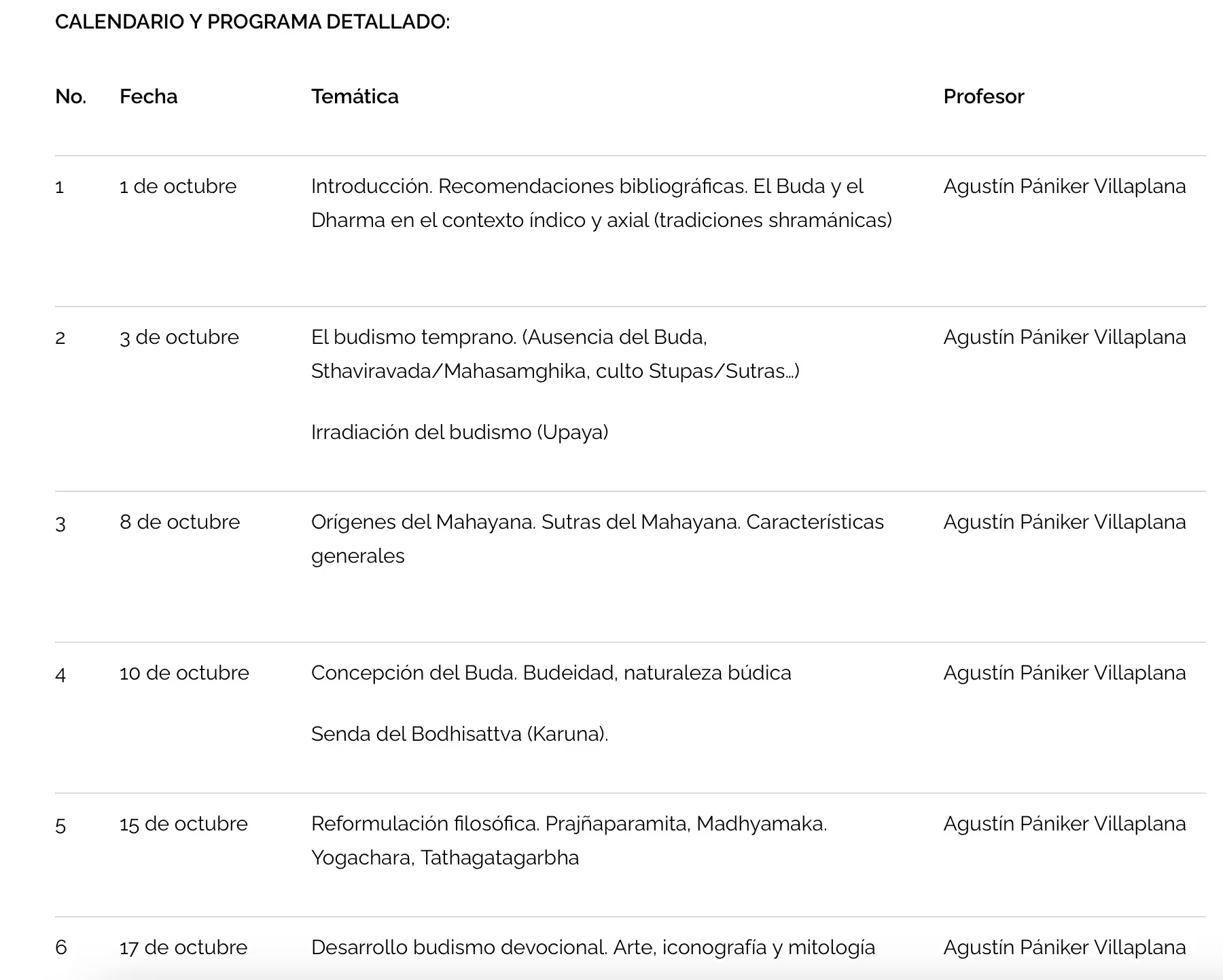
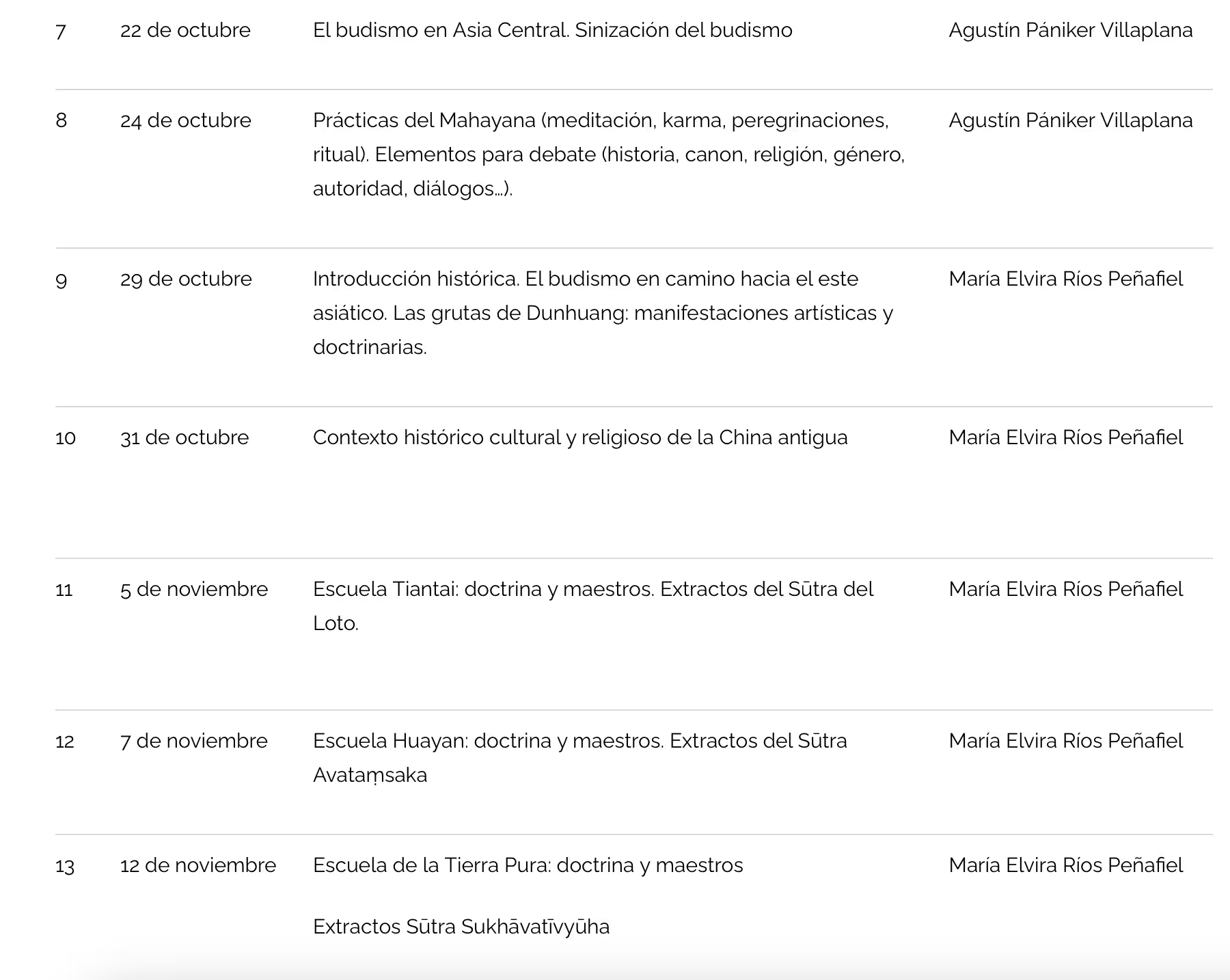

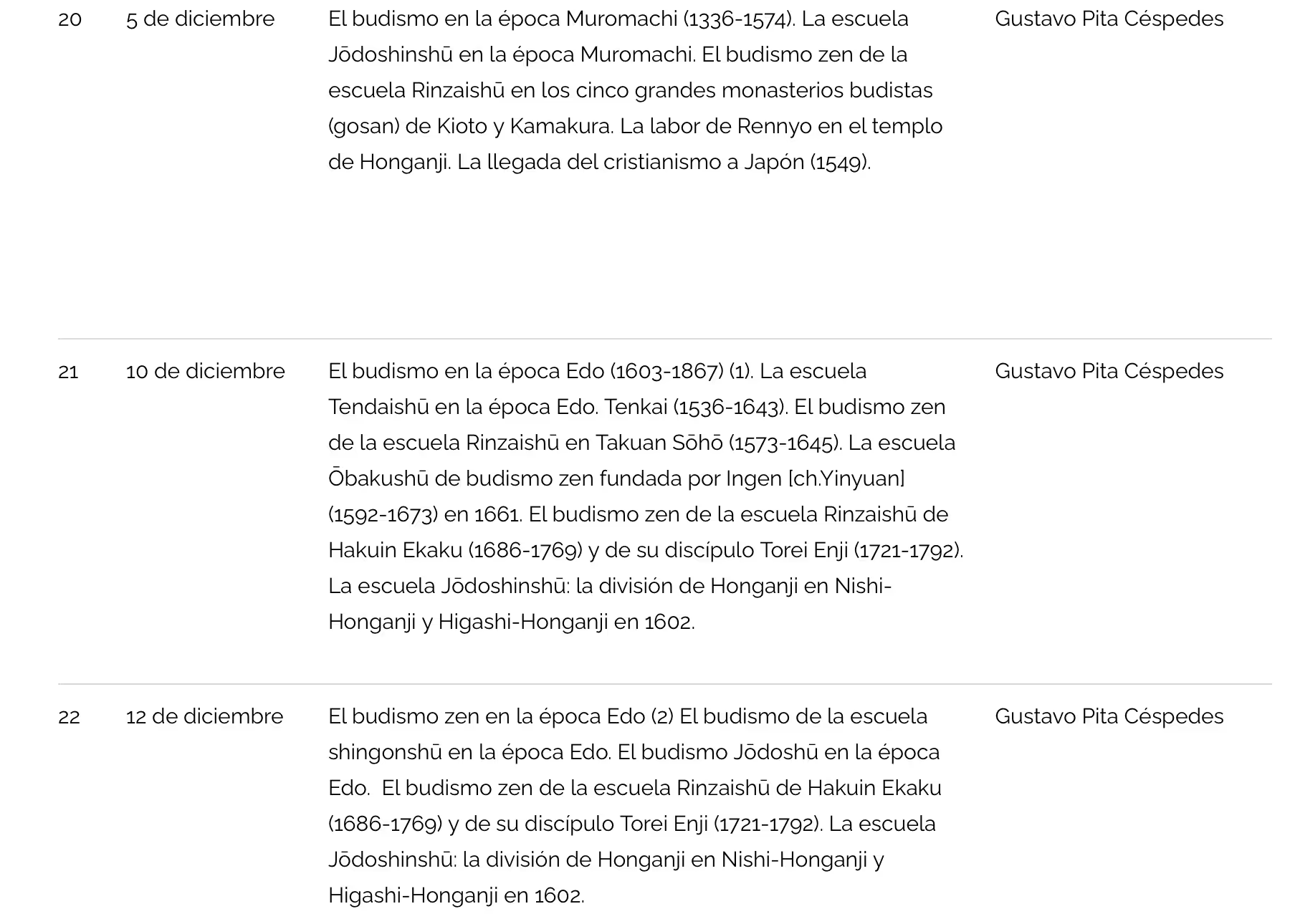
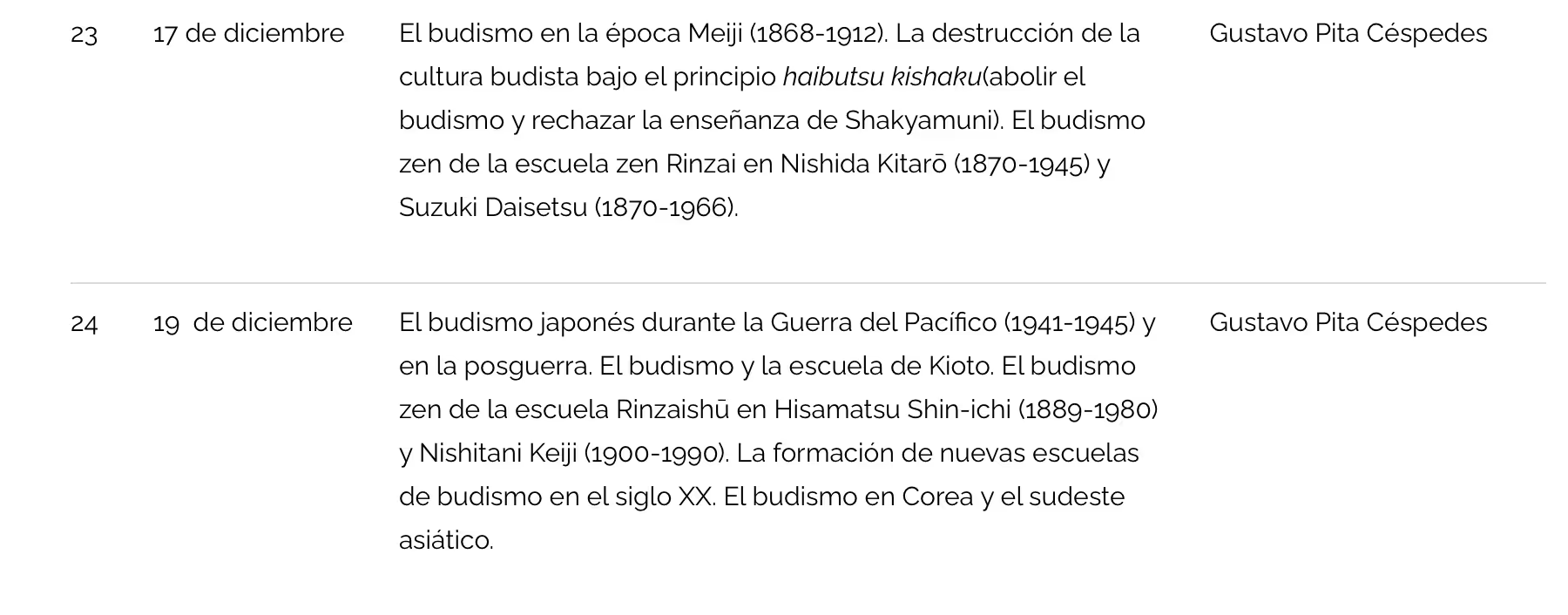
Links of interest:
Rovira i Virgili University 2020 presentation video
Articles published in Buddhistdoor in English
"The situation of Buddhist studies in Spain: teaching programs" by Juan Arnau Navarro, Montse Castellà Olivé, Francisco Díez de Velasco, Ricardo Guerrero Diáñez, Basili Llorca Martínez, Daniel Millet, Agustín Pániker Vilaplana, Aleix Ruiz Falqués, Jaume Vallverdú Vallverdú, Abraham Vélez de Cea.
"An Ecosophical Interpretation of the Buddhist Experience of Ganying " by Maria Elvira Rios.
"El Dios de lo extraño: Buda en las revistas chilenas de principio del sigloXX " by María Elvira Ríos.
"Fascinating and auspicious Buddhist gadgets: the NIANFOJI" by María Elvira Ríos.
Other related articles published in Buddhistdoor in English
"Interview with Agustín Pániker, director of Editorial Kairós" by Daniel Millet.
"The dreams of perfection. Buddhism and transhumanism. Interview with Jaume Vallverdú " Daniel Millet










